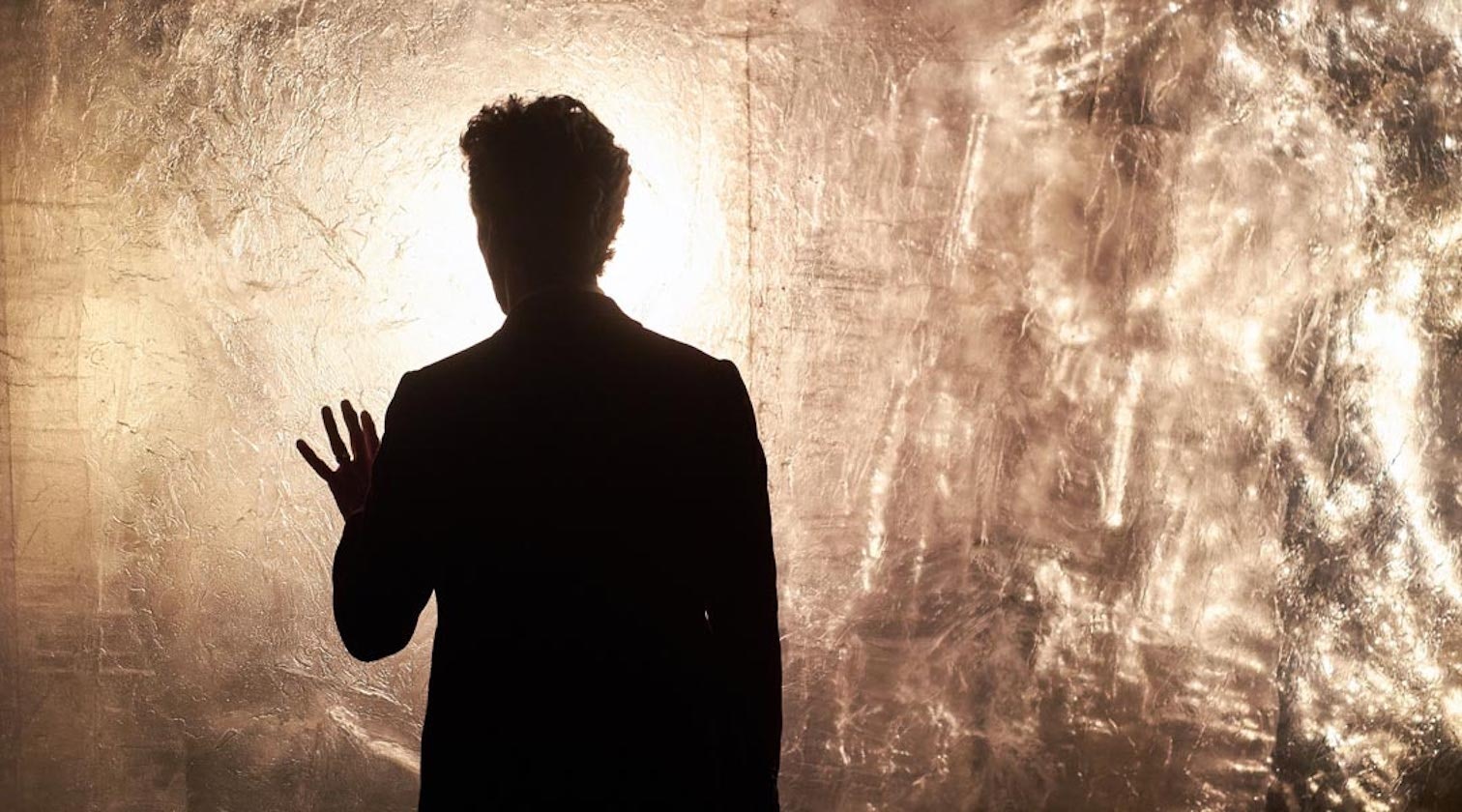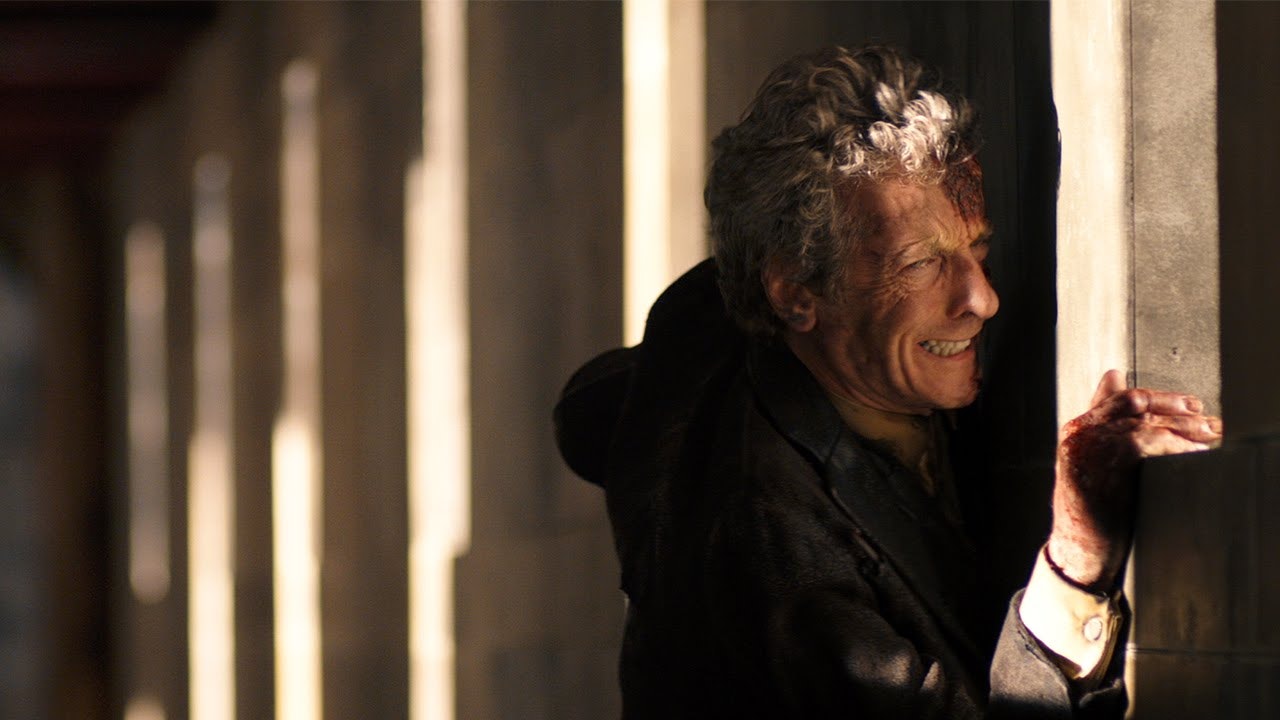
If Peter Capaldi is not your favorite version of the Doctor in Doctor Who, that’s understandable. After back-to-back youthful and energetic Doctors from 2006 through 2013 (David Tennant, Matt Smith) the Doctor regenerated into an irascible crank, a kind of throwback to earlier versions of the long-running sci-fi series. And yet, on November 28, 2015, in the penultimate episode of Season 9, Doctor Who released what is easily the best standalone entry in the series ever. Here’s why Who never topped this one and why it’s one of the best hours of sci-fi TV in the 21st century.
Although Doctor Who is primarily thought of as a quirky time travel adventure series, what casual fans tend to forget is that some of the classic foundations of Who are also rooted in horror tropes. The Doctor doesn’t just travel in time and space righting wrongs, they also fight monsters. In “Heaven Sent,” the Doctor teleports into a haunted castle, designed by an outside force, with one intention: to scare him to death.
“Heaven Sent” is Episode 11 in Season 9, and picks up just after the events of the previous episode, “Face the Raven.” In that episode, the Doctor’s companion Clara (Jenna Coleman) died before the Doctor’s eyes, which is what motivates his rage at the start of this episode. “I just watched my best friend die in agony, my day can’t get any worse,” Capaldi bellows at the start. “Let’s see what we can do about yours!”

Other than a few brief lines from Coleman, the majority of the episode is a career-defining, chilling solo performance from Peter Capaldi, narrating his journey, taunting his unseen captors, confiding in the recently deceased Clara, but also speaking to us. The Doctor is alone and frightened, but blustering through this “torture chamber” with quips, and often, meditative soliloquies about the nature of mortality. “There are two events in everybody's life that nobody remembers,” the Doctor says. “Two moments experienced by every living thing, yet no one remembers anything about them. Nobody remembers being born and nobody remembers dying.”
“Heaven Sent,” combines then-showrunner Steven Moffat’s Sherlockian writing style with Peter Capaldi’s magnificent acting chops in a way Doctor Who never achieved before or since. Even though “Heaven Sent” is part of a specific story arc within Season 9, it’s also a brilliant first episode for a new fan to get into Doctor Who. It deconstructs the character of the Doctor without resorting to fan service or nostalgia. Longtime fans could easily imagine a version of this episode in which the Doctor’s haunted castle was populated by their most famous enemies of the past; Daleks, Cybermen, you name it. But it’s not like that. The episode doesn’t cheat.

Even the musical score from composer Murray Gold is unique to this episode, a kind of haunting music that uses motifs from the Capaldi era sparingly. The music of “Heaven Sent” makes the entire episode feel like a short film, rather than just one more episode of Doctor Who. This sensibility is also cemented by the breathtaking direction of Rachel Talalay. Her cinematic style dominated the Capaldi era of Doctor Who, but relevantly, her background directing horror flicks like Freddy’s Dead (1991) and Ghost in the Machine (1993) is part of why “Heaven Sent” is so damn scary. (And if you loved Talalay’s directorial style on Who, good news: She’s back in 2023 for the new David Tennant specials.)
Seven years after the resolution of Season 9, any of the specific questions about Clara’s death, the mystery of “the hybrid,” or the motivations for the Time Lords' interrogation of the Doctor hardly matter. Instead, the episode endures to this day because it is one of the most emotionally affecting and intellectually bracing hours of science fiction ever. What propels the story is the Doctor trying to unravel the mystery of where he is and what has happened. The episode’s biggest twist comes nearly two-thirds of the way through: We learn that the Doctor hasn’t time-traveled anywhere and that there’s not much trickery going on here at all. Instead, he’s basically become a series of teleport copies of himself, each copy created by the death of the previous one. This grisly premise is dark for Doctor Who, and could easily exist in a show like Black Mirror. (Westworld Season 4 recently seemed to borrow the exact same premise, in fact.)
“Heaven Sent” is a time-loop episode that doesn’t rely on the gimmicks of a time-loop episode to create a mystery. Instead, the time loop creates profound emotional stakes. The Doctor quotes from the Grimms’ fairy tale “The Shepard’s Boy,” and asks “how many seconds in eternity?” In a brilliant sequence toward the climax of the episode, the Doctor uses the time loop against his captors and decides to play the long game. We don’t notice he’s making progress at first, but then as he chips away at an impossibly strong wall, it dawns on us he’s able to recite more of the story, word, by word, until he breaks through the wall.
Through suffering, patience, and strength of will, the Doctor accepts that it may take a billion years to chisel just one piece of rock away. He’s okay with that. In the end, the message of “Heaven Sent” is one of optimistic and patient resilience in the face of utter horror. The Doctor can only achieve victory through failure and acceptance of his fate. But, he can win in the end through artistic creativity. His secret to defeating death? “Imagine you’ve already survived.”
Doctor Who Season 9, Episode 11, “Heaven Sent,” is streaming now on HBO Max.







